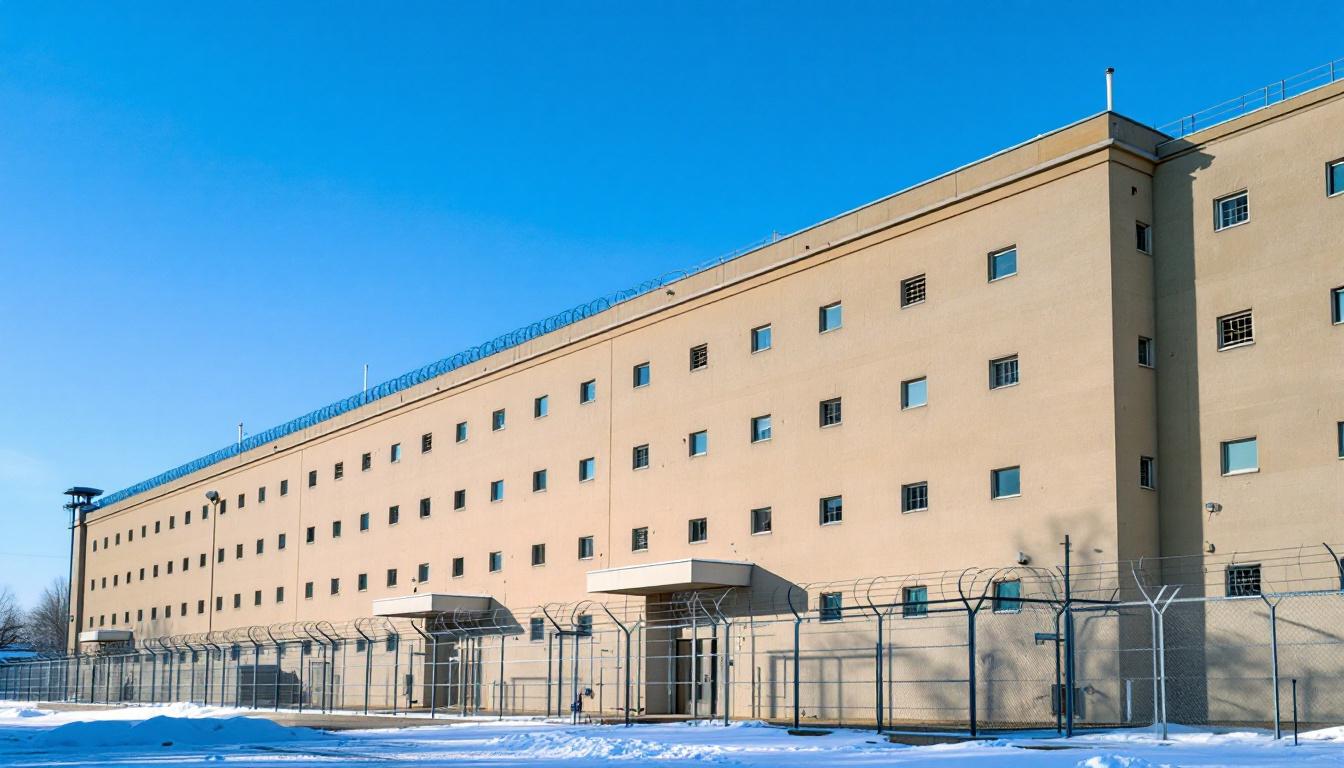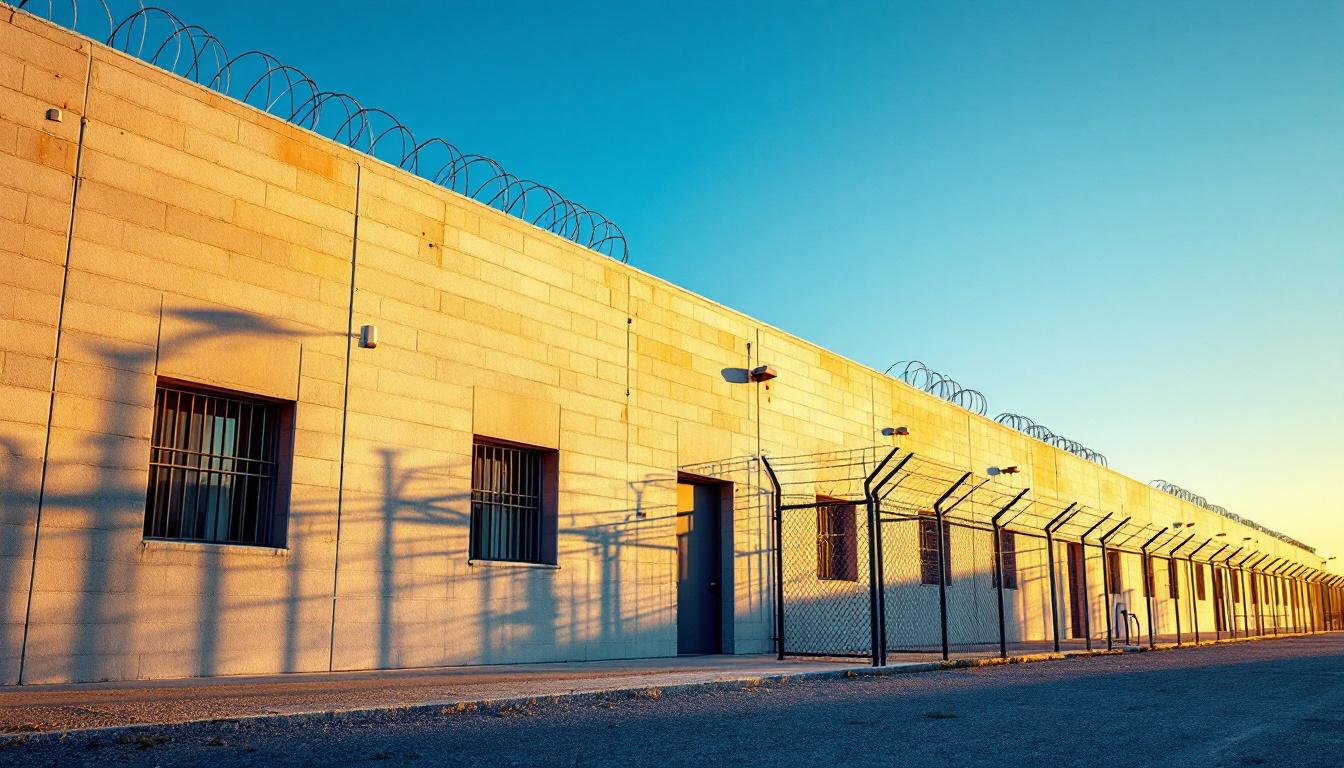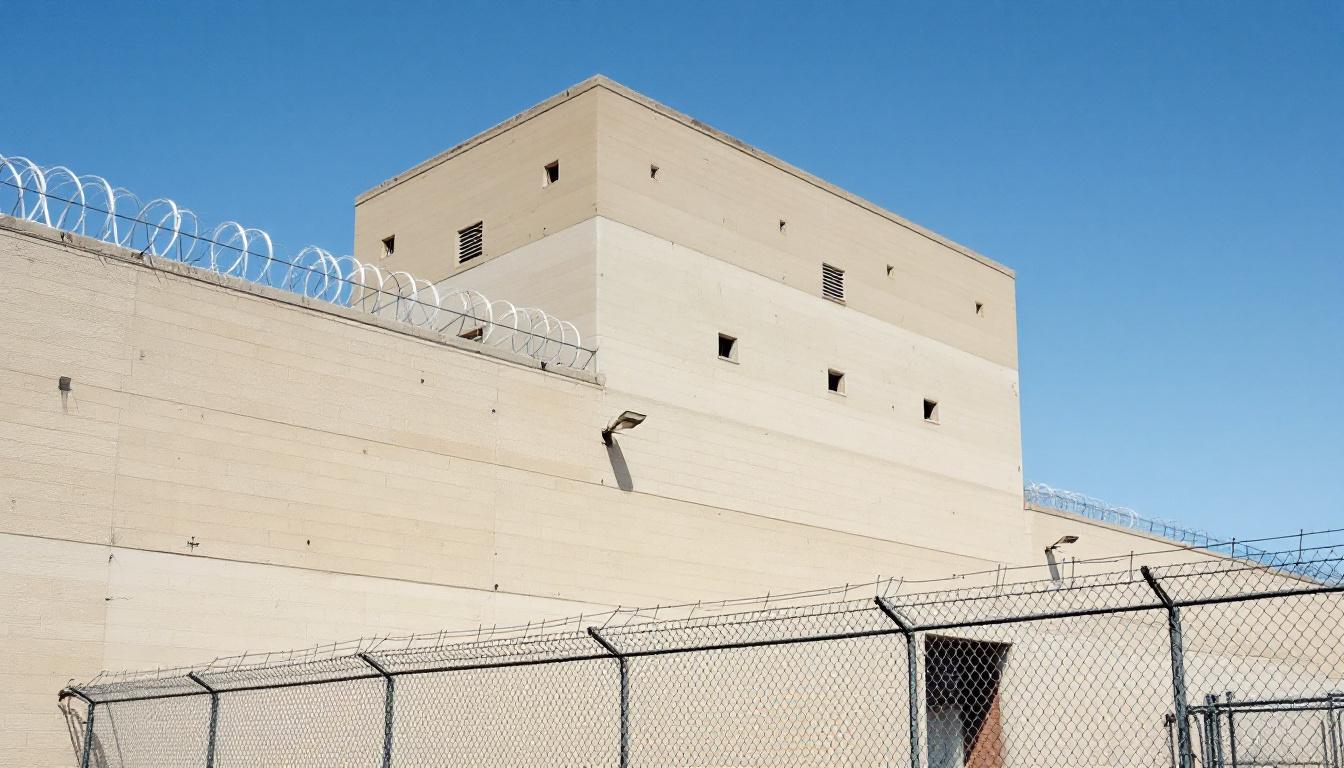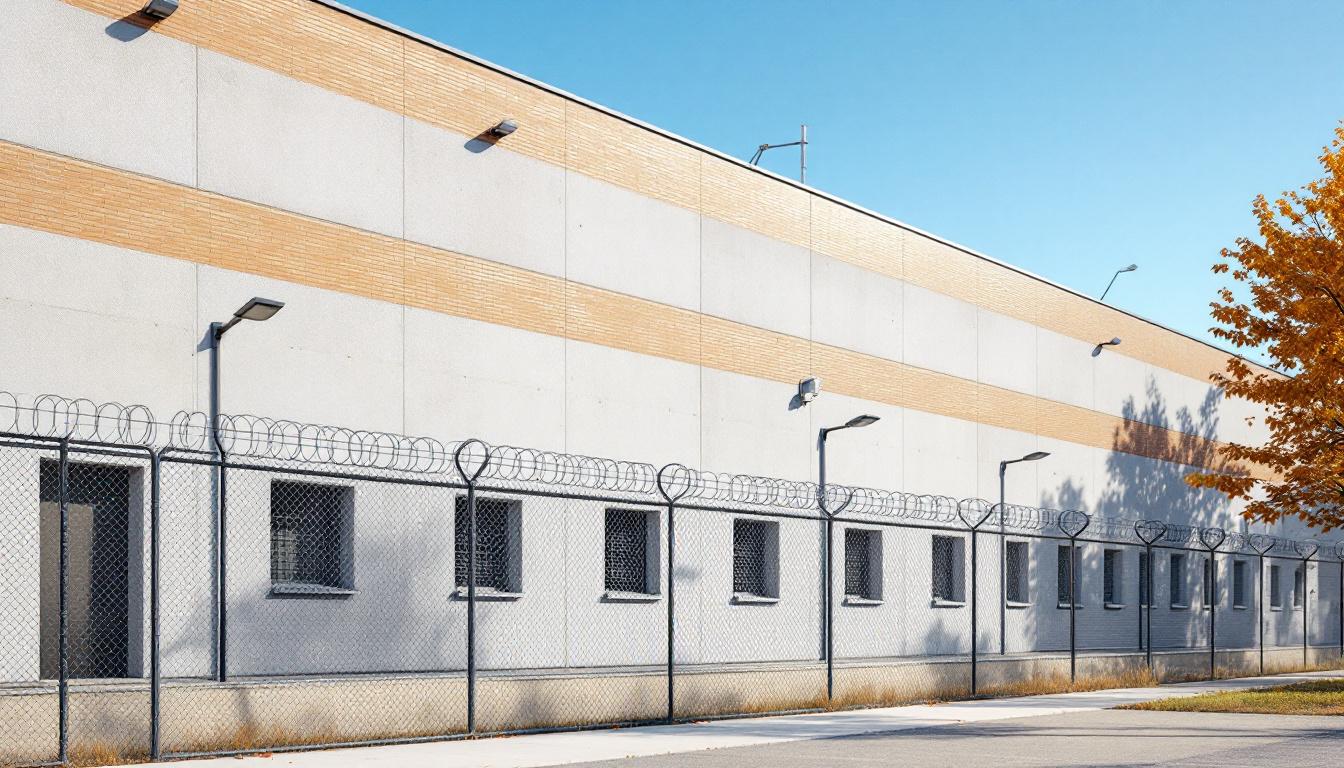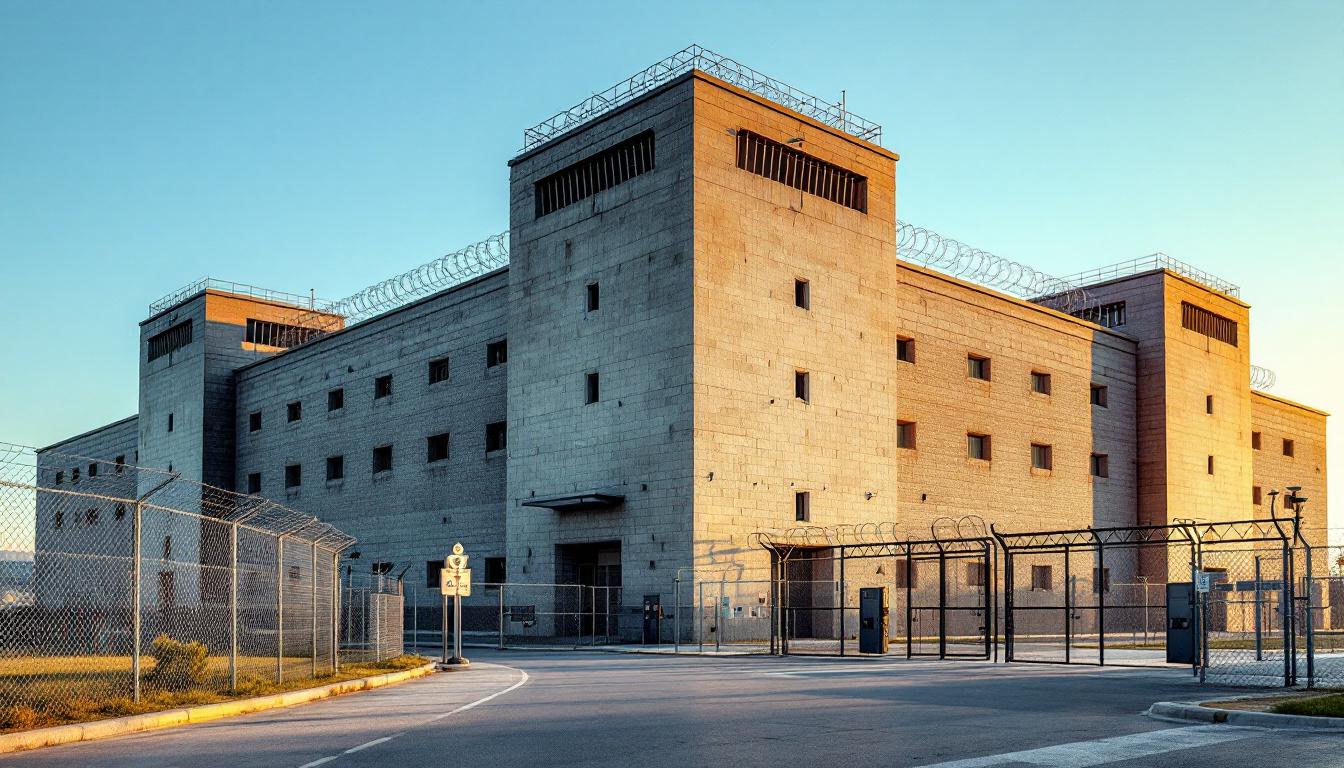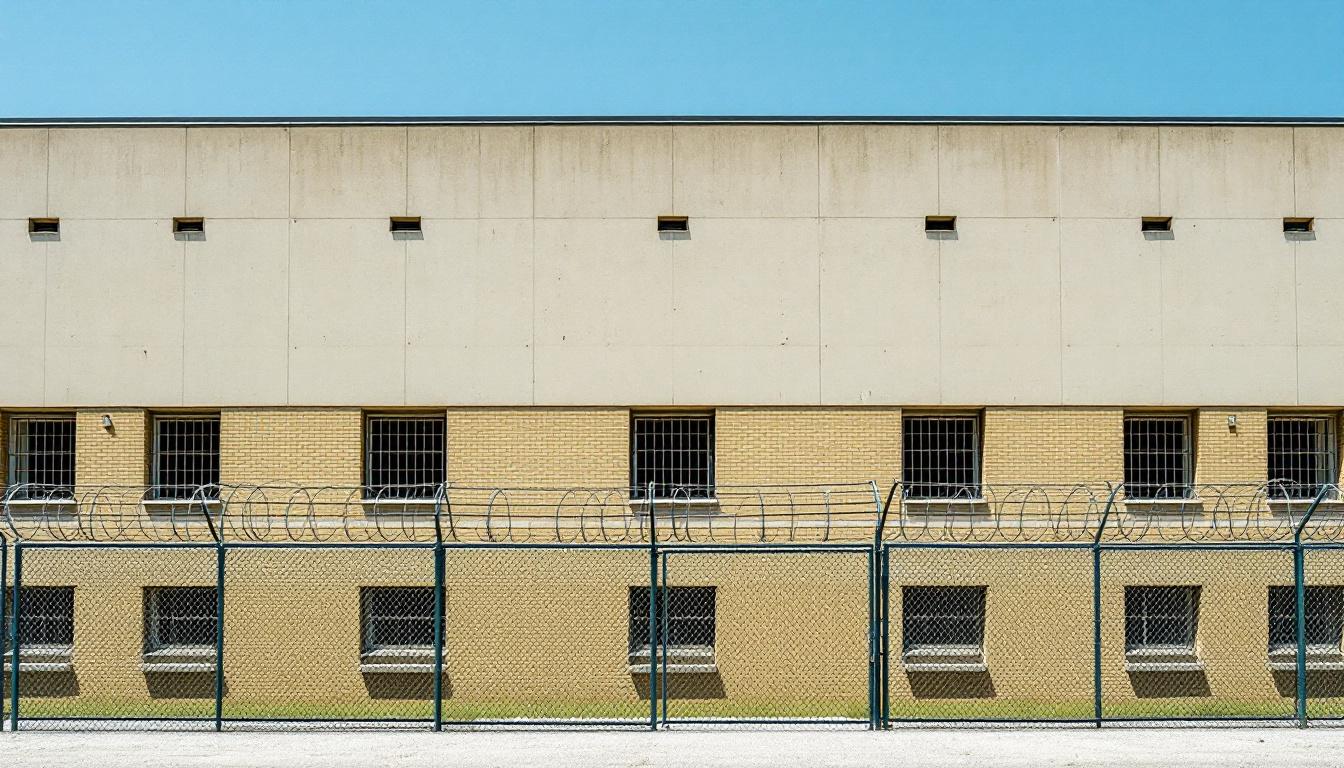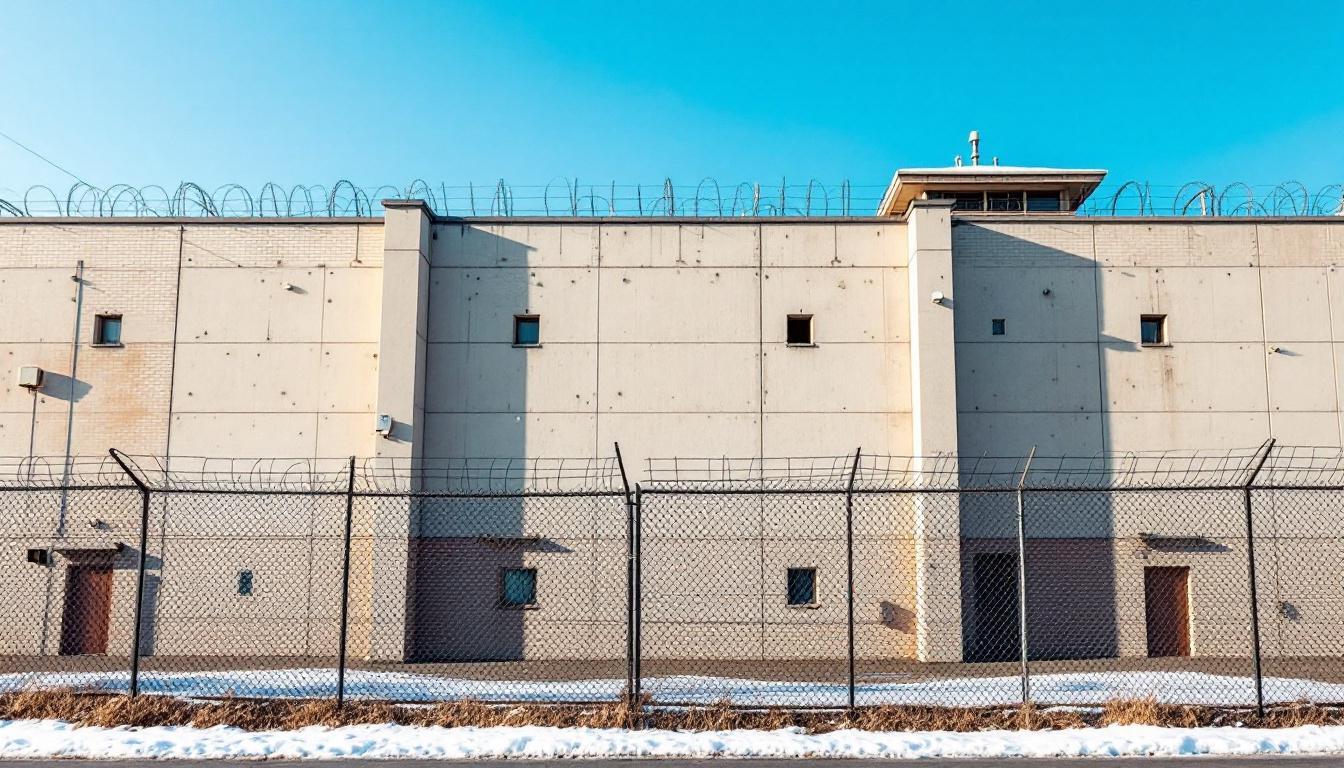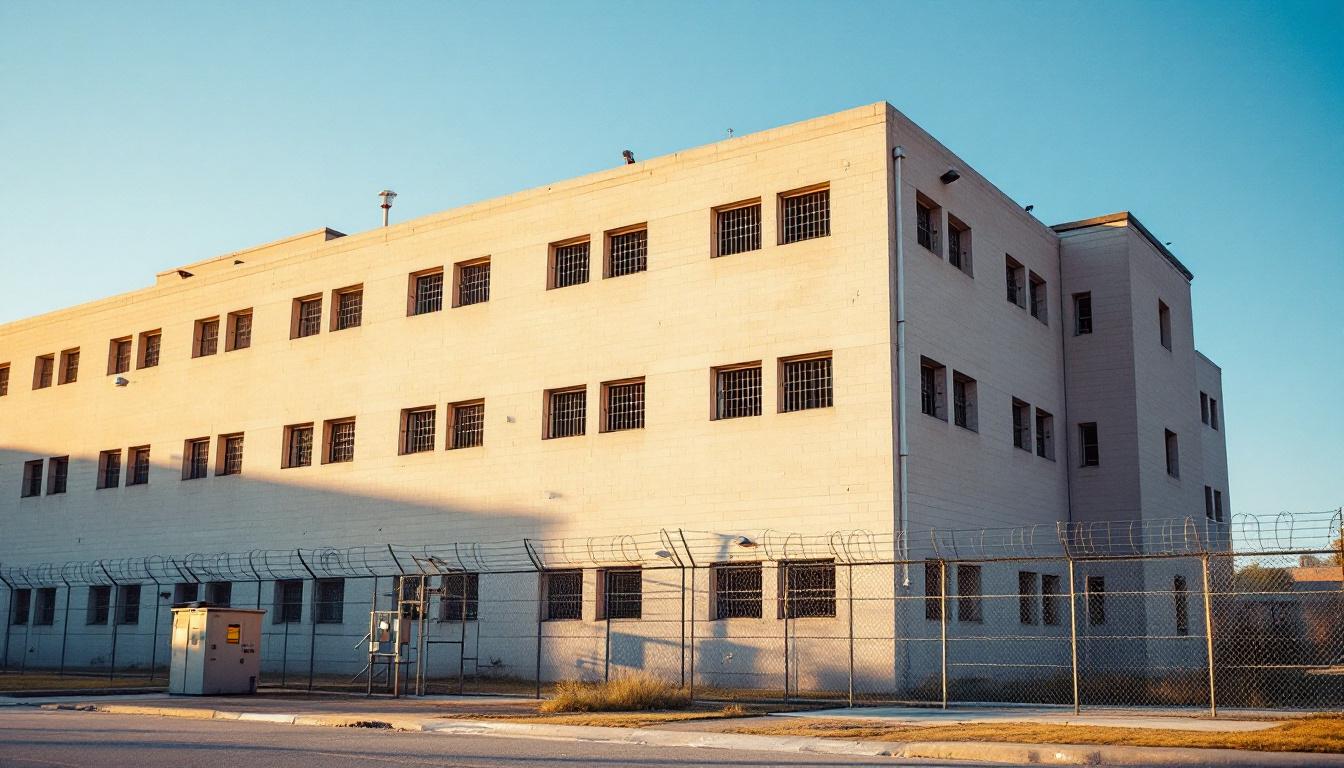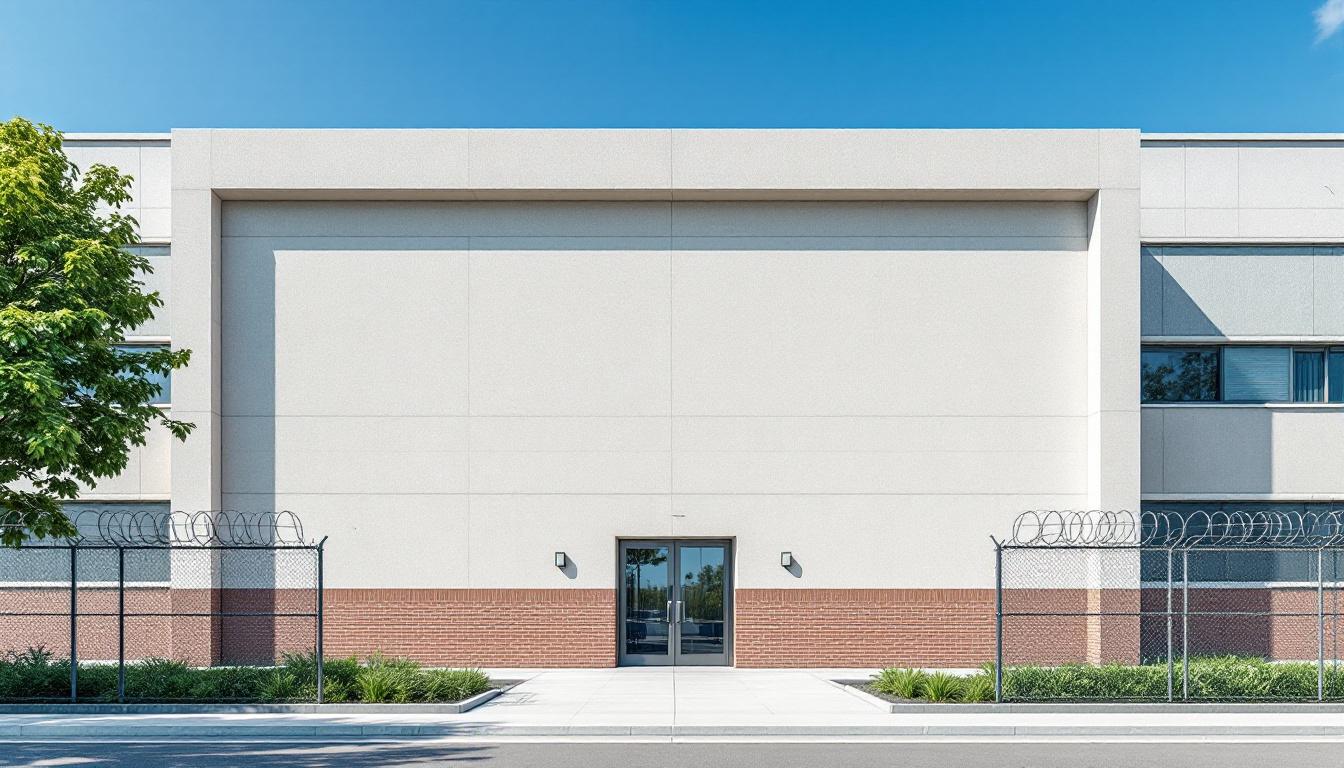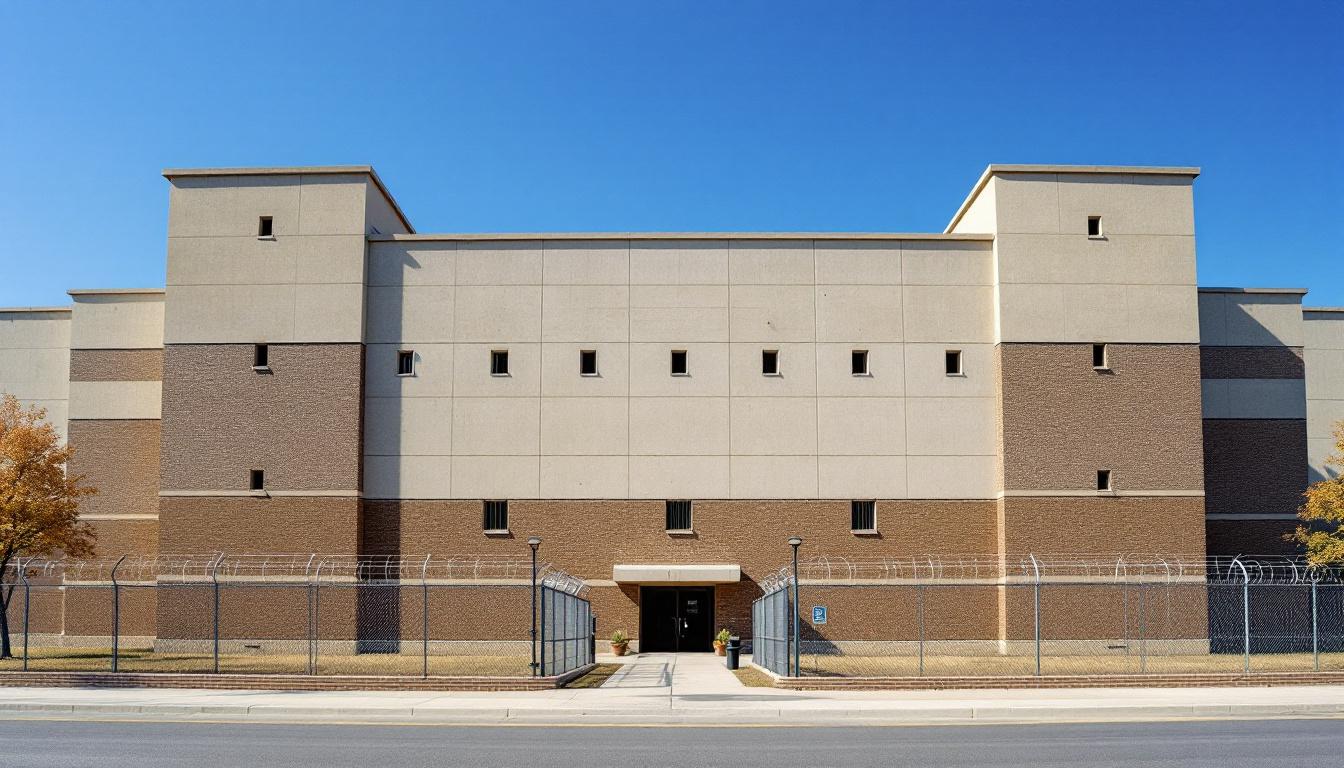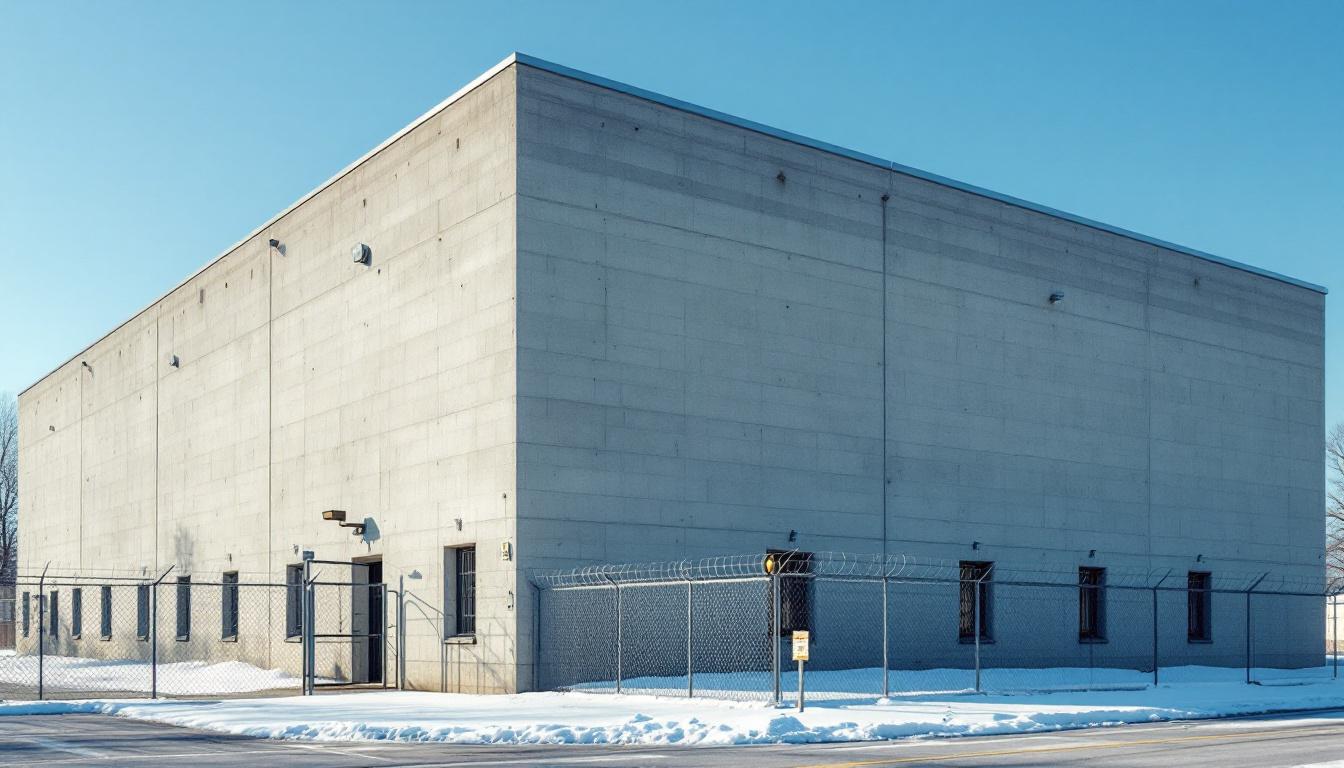
Quick Navigation
How to contact an inmate at Tift County Sheriff's Office
This comprehensive guide will walk you through how to connect with an inmate at Tift County Sheriff's Office. Follow the steps below to find an inmate and send letters and photos:
- Search for the inmate using our search tool below
- Create your account or log in to Penmate
- Write your message (up to 6,000 characters)
- Send instantly - inmates receive printed copies daily
Find an Inmate
Search for an inmate to start communicating today
Tip: You can search by first name, last name, or inmate ID number
To contact a person at Tift County Sheriff's Office start by searching for the person on the official facility website. Perform a search by following these steps:
- Step 1: Enter their first name and last name into the search form and click "Search"
- Step 2: Locate their inmate record
- Step 3: Write down their Inmate ID and any housing information provided
Important! Be sure to enter the person's full name. Nicknames should not be used.
How to Send Messages to Inmates

You can use your phone or computer to send emails, letters, and photos to an inmate. Messages are sent electronically to inmate tablets or kiosks at the facility. If you would like to send a message, start by searching for an inmate at Tift County Sheriff's Office.
Sending Photos and Postcards

A great way to send love and support to a loved one at Tift County Sheriff's Office is to send photos and postcards. It only takes a few minutes to send photos from your phone and it makes a huge difference. You can also mail postcards with words of support and inspiration, or design your own postcard for special moments like birthdays and holidays.
Important! Be sure not to send any explicit photos or they may not be approved by the facility. You can also use a photo printing app like Penmate to make sure your photos are printed at the correct size (4x6 or 3x5) and are mailed according to the rules and regulations of Tift County Sheriff's Office.
Frequently asked questions about Tift County Sheriff's Office
-
How long does it take to deliver a message?
If you're sending an email message your letter is usually delivered within 24-48 hours. For messages sent via mail you should expect delivery within 3-7 days. All messages will need be approved by Tift County Sheriff's Office.
-
How much does it cost to send a message to Tift County Sheriff's Office?
You can send a message free using your phone or mail a message via USPS for the price of a $0.60 stamp and envelope. You can also purchase credits or e-stamps from services starting at $1.99.
-
What services can I use to contact an inmate at Tift County Sheriff's Office?
Penmate
You can use Penmate to send letters and photos to an inmate from your phone. It's an easy way to stay in touch during your loved one's incarceration. Use the inmate locator to find an inmate's location and contact information, then you can send messages within a few minutes.
Securus messaging
Securus may be another option for communicating with an inmate at Tift County Sheriff's Office. You can create a friends and family account and purchase credits to send messages. All messages will be reviewed and must be approved by the facility.
JPay
Some county jails and state prisons may support sending messages with JPay. You must register an account with the system, find your loved one, and purchase stamps to send messages. For some locations you can also attach photos.
Smart Jail Mail
You may also check if Smart Jail Mail is available at Tift County Sheriff's Office. Smart Jail Mail is operated by Smart Communications and has contracted with some state and county jails. After purchasing credits, your messages and photos are sent to the facility, printed out, and then handed out to your loved one.
-
What is the mailing address of Tift County Sheriff's Office?
Mailing address:
Tift County Sheriff's Office
500 Morgan Dr
Tifton, GA 31794
Phone: (229) 388-6020Business hours:
- Monday: 8:00 AM – 5:00 PM
- Tuesday: 8:00 AM – 5:00 PM
- Wednesday: 8:00 AM – 5:00 PM
- Thursday: 8:00 AM – 5:00 PM
- Friday: 8:00 AM – 5:00 PM
- Saturday: Closed
- Sunday: Closed
-
What are the visiting hours at Tift County Sheriff's Office?
Visiting hours at Tift County Sheriff's Office vary by housing unit and security level. Generally, visits are scheduled on weekends and holidays, with some facilities offering weekday visits. Contact the facility directly at (229) 388-6020 or check their website for the current visiting schedule. Visits typically last 30-60 minutes and must be scheduled in advance.
-
What items are prohibited when sending mail to Tift County Sheriff's Office?
Prohibited items typically include: cash, personal checks, stamps, stickers, glitter, glue, tape, staples, paperclips, polaroid photos, musical or blank greeting cards, hardcover books, magazines with staples, and any items containing metal or electronics. Only send letters on plain white paper with blue or black ink. Photos must be printed on regular photo paper (no Polaroids). Always check with Tift County Sheriff's Office for their specific mail policies.
-
How do I send money to an inmate at Tift County Sheriff's Office?
You can send money to an inmate at Tift County Sheriff's Office through several methods: 1) Online using JPay, Access Corrections, or the facility's approved vendor, 2) Money orders mailed directly to the facility with the inmate's name and ID number, 3) Kiosks located in the facility lobby, or 4) Over the phone using a credit or debit card. Fees vary by method, typically ranging from $2.95 to $11.95 per transaction.
-
Can I schedule a video visit with an inmate at Tift County Sheriff's Office?
Many facilities now offer video visitation as an alternative to in-person visits. At Tift County Sheriff's Office, video visits may be available through services like Penmate, Securus Video Connect, GTL, or ICSolutions. Video visits typically cost $10-20 for 20-30 minutes and must be scheduled in advance. You'll need a computer or smartphone with a camera and reliable internet connection. Contact the facility for their specific video visitation policies and approved vendors.
-
What identification do I need to visit an inmate at Tift County Sheriff's Office?
All visitors must present valid government-issued photo identification such as a driver's license, state ID, passport, or military ID. Minors must be accompanied by a parent or legal guardian who can provide the minor's birth certificate. Some facilities require visitors to be on the inmate's approved visitation list, which may require a background check. Contact Tift County Sheriff's Office for specific ID requirements and visitor approval procedures.
-
How can I find out an inmate's release date?
To find an inmate's release date at Tift County Sheriff's Office, you can: 1) Use the online inmate search tool if available, 2) Call the facility's records department, 3) Contact the inmate's case manager or counselor, or 4) Have the inmate provide this information during a call or visit. For privacy reasons, some facilities only release this information to immediate family members.
Facility Overview
Contact Information
Tift County Sheriff's Office500 Morgan Dr
Tifton, GA 31794
Phone: (229) 388-6020
Official Website

About Tift County Sheriff's Office
Detention centers serve as critical components in the criminal justice process, housing individuals awaiting trial or serving shorter sentences while facilitating essential connections between the legal system and community reintegration efforts. Within this framework, Tift County Law Detention, GA operates as a local correctional facility serving the Tifton area and surrounding communities in south Georgia. The facility typically processes individuals through various stages of the detention experience, from initial intake procedures through potential release preparation, maintaining focus on both secure custody and preparing individuals for their eventual return to the community.
Located in Tifton, a city that serves as a regional hub for south Georgia’s agricultural and educational sectors, the detention center operates within a broader network of GA correctional facilities that collectively support public safety initiatives across the state. The facility’s geographic position allows it to serve not dedicated Tift County residents but often assists with the population services needs of surrounding rural communities where access to correctional resources may be more limited. Through systematic approaches to daily operations, the facility typically maintains structured environments that may include educational opportunities, substance abuse programming, and mental health services designed to address underlying issues that contribute to criminal behavior.
The detention center’s contribution to public safety and rehabilitation generally extends beyond simple incarceration through programs that often focus on skill development, family communication maintenance, and community reintegration planning. Staff typically work to connect individuals with local resources and support systems that can provide continuity of care upon release, recognizing that successful rehabilitation often depends on strong community connections and family support networks throughout the detention process.
Programs & Services
Through comprehensive programming initiatives, the population at Tift County Law Detention receives multifaceted support designed to address their diverse needs while incarcerated. The facility’s approach emphasizes holistic development, recognizing that meaningful reintegration requires attention to educational deficits, vocational skills, and underlying personal challenges. These programs typically operate under a framework that prioritizes both immediate stability and long-term success, fostering an environment where participants can develop essential life skills and address barriers that may have contributed to their incarceration.
Educational programs form a cornerstone of the facility’s offerings, often including basic literacy instruction, GED preparation, and continuing education opportunities that allow the population to advance their academic credentials. Furthermore, vocational training initiatives may supply hands-on instruction in practical trades and marketable skills, enabling participants to develop competencies that enhance their employment prospects upon release. These educational and vocational components typically work in tandem, creating pathways for both intellectual growth and practical skill development that serve the dual purpose of personal enrichment and community reintegration preparation.
The facility’s support structure extends beyond academic and vocational programming to encompass therapeutic and spiritual dimensions of rehabilitation. Dual diagnosis treatment programs often address the complex intersection of mental health and substance abuse issues, providing specialized interventions for those facing co-occurring disorders. Additionally, faith-based services may offer spiritual guidance and community connection for those seeking such support, while facility maintenance programs typically provide opportunities for the population to contribute meaningfully to their environment while developing work habits and responsibility. These diverse programming elements collectively create a comprehensive support network that addresses the multifaceted needs of individuals preparing for successful community reintegration.
Daily Life & Visitation
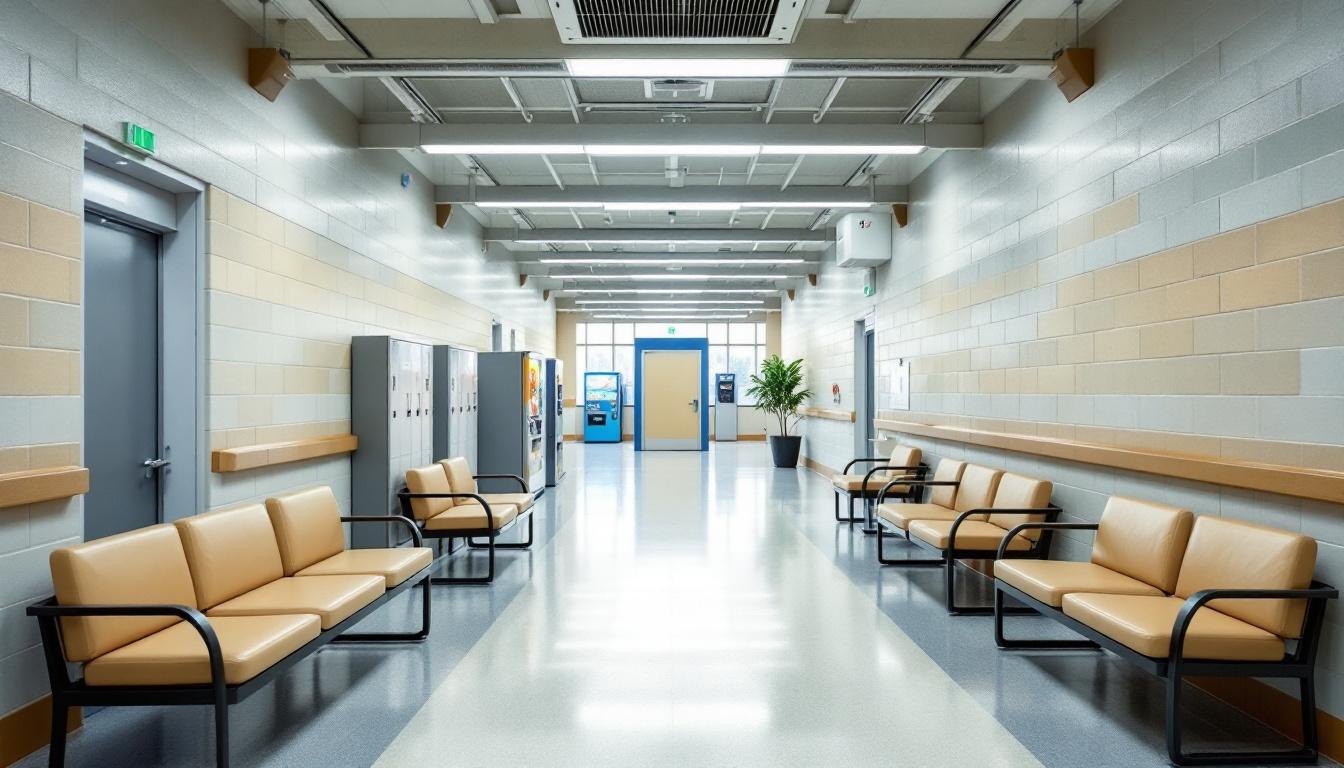
The carefully orchestrated framework of institutional protocols shapes every aspect of life within the walls of Tift County Law Detention, where systematic scheduling and clear hierarchical structures create predictable patterns that guide the population through each day. Today’s routine typically begins with early morning accountability counts, followed by meal service that operates on a consistent timeline, ensuring the population maintains regular eating schedules while facilitating orderly movement throughout the housing units. Furthermore, this structured approach extends to all aspects of daily operations, from medical appointments to recreational periods, with staff maintaining detailed schedules that supply stability and routine for those in custody.
The living accommodations generally consist of dormitory-style housing units or individual cells, depending on classification levels and available space, with each area designed to house multiple individuals while maintaining appropriate supervision and security protocols. Although personal belongings are typically limited to essential items and approved commissary purchases, the population usually has access to basic amenities including bedding, hygiene supplies, and writing materials. Furthermore, the facility generally provides designated areas for personal storage, allowing individuals to maintain some personal items within established guidelines while ensuring security requirements are consistently met.
Structured programming schedules typically include educational opportunities, work assignments within the facility, and recreational activities that supply both physical exercise and constructive engagement for the population. Although visitation policies may vary based on security classifications and current regulations, family members and approved visitors generally have scheduled opportunities to maintain contact through in-person visits, telephone calls, and correspondence. Furthermore, work assignments often include kitchen duties, cleaning responsibilities, and facility maintenance tasks that provide structure to daily routines while contributing to the overall operation of the institution, creating a sense of purpose and responsibility among the population during their time at the facility.
Ready to Connect?
Start communicating with your loved one today
Search for an Inmate
